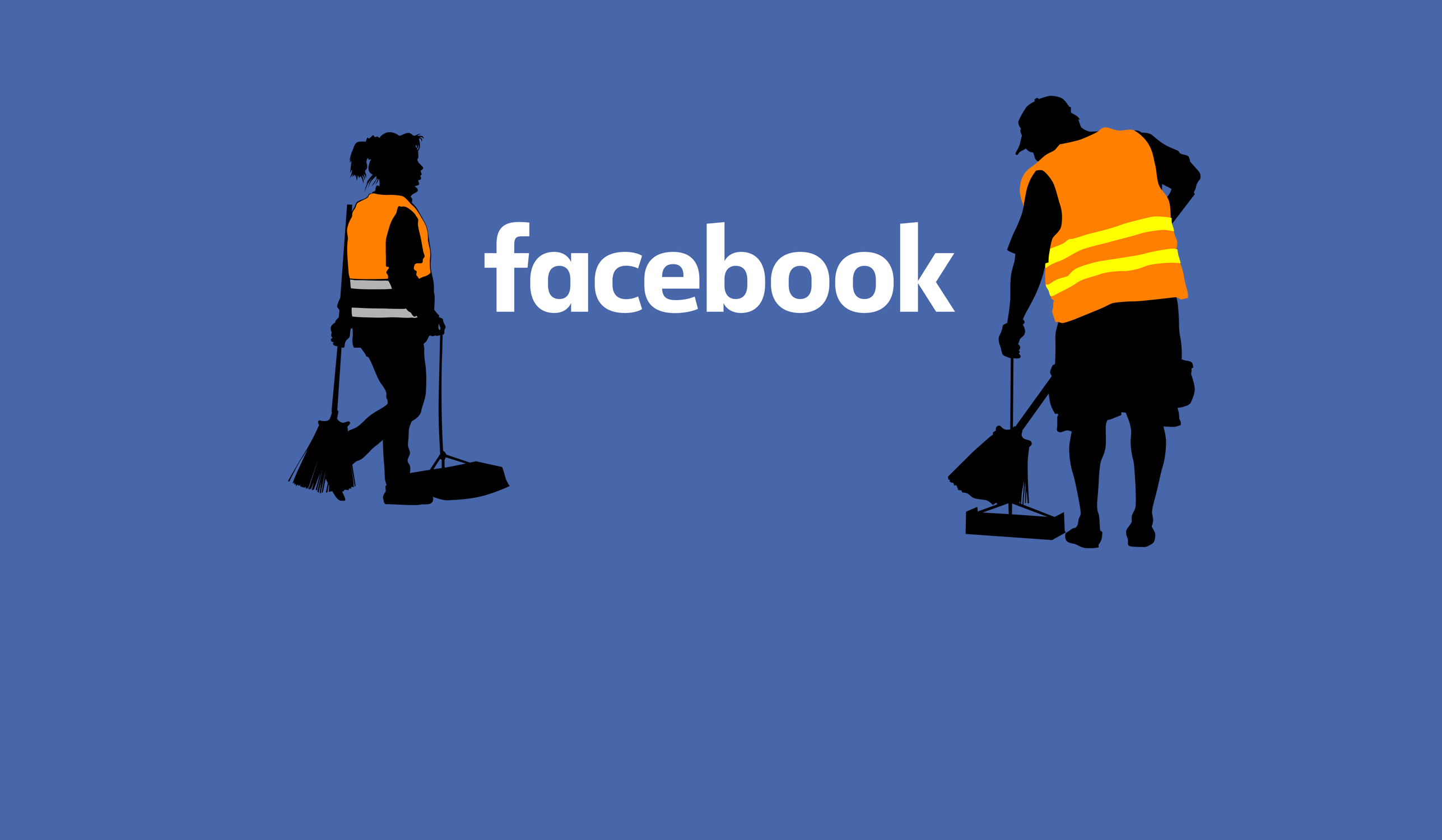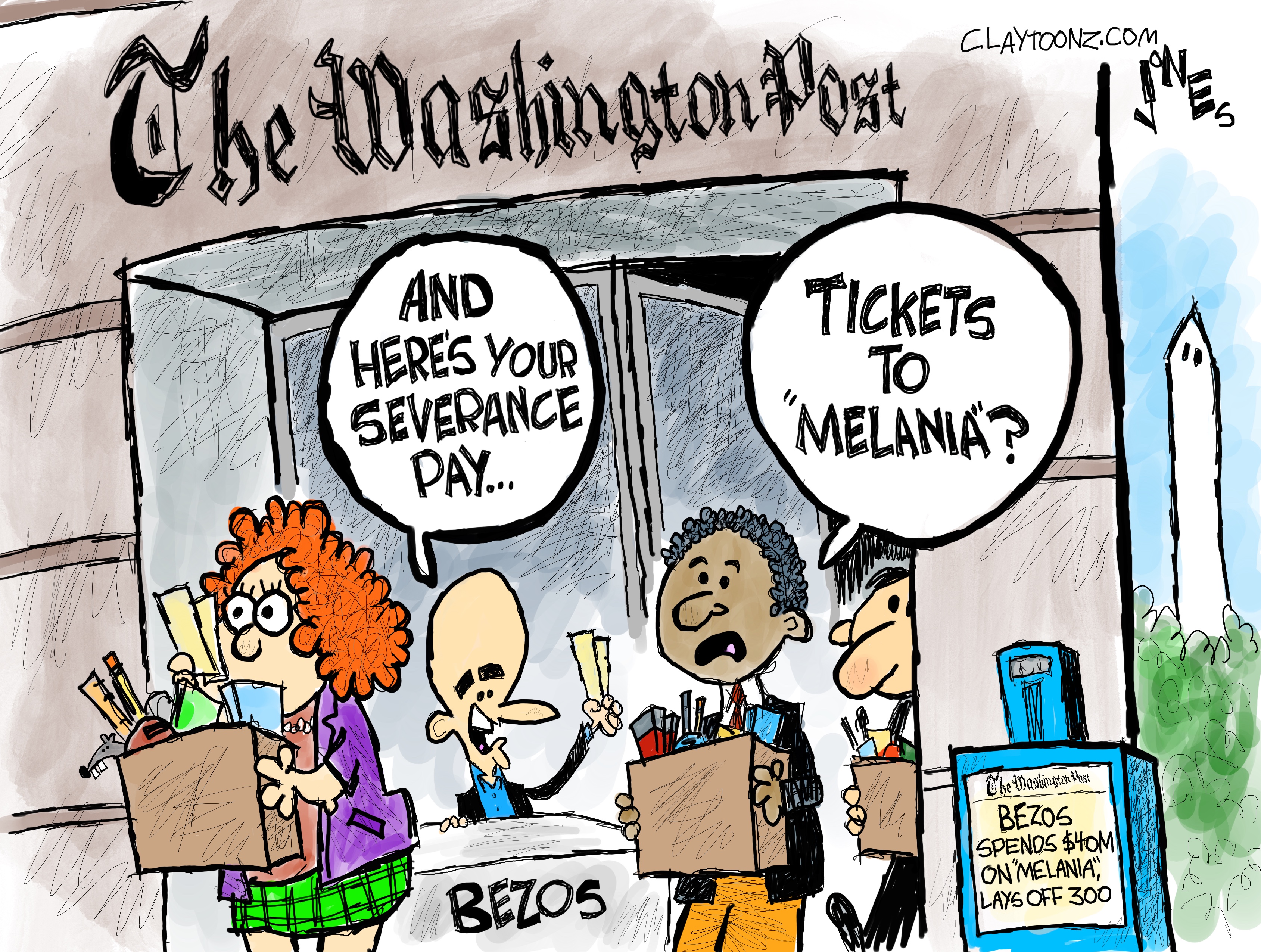Why Facebook's fake news fix is bound to fail
Sorry, Zuckerberg


A free daily email with the biggest news stories of the day – and the best features from TheWeek.com
You are now subscribed
Your newsletter sign-up was successful
The epidemic of fake news is upon us. Or so our cultural leaders have decided. It's infiltrating our social media feeds and our Google searches, planting seeds of untruth with such sway over our opinions as to alter the results of the 2016 presidential election. The horror!
I, for one, am not convinced. I'm not convinced that fake news is more of a problem today than it was five years ago, or even 50 years ago. And I'm certainly not convinced that it played a vote-moving role in the recent presidential election.
But never mind all that. The public is angry. The media is angry. And Facebook has a plan!
The Week
Escape your echo chamber. Get the facts behind the news, plus analysis from multiple perspectives.

Sign up for The Week's Free Newsletters
From our morning news briefing to a weekly Good News Newsletter, get the best of The Week delivered directly to your inbox.
From our morning news briefing to a weekly Good News Newsletter, get the best of The Week delivered directly to your inbox.
Here are the basics: Stories deemed "fake" will not be removed from Facebook, but they will be "flagged," meaning a small notice will appear below them, stating they have been "disputed by third party fact-checkers." Facebook has enrolled media and nonprofit groups to do this fact checking. The first four are ABC News, PolitiFact, The Washington Post, and Snopes. If at least two decide that a story doesn't pass the smell test, that story will get the flag.
This is a clever business move by Facebook. The participants have stated they're doing this for free as a public service. But this service will help Facebook improve its algorithms, which decide what posts appear in your news feed. That algorithm, of course, is Facebook's top-secret weapon, since it's what keeps us coming back to the site day after day after day.
But despite how shrewd this moneymaking move is, it's still likely to be a disaster. Allow me to explain why.
For a lot of people who are attracted to fake news, this flag might start to look like validation. I mean, come on: People who buy actual conspiracy theories aren't going to be swayed by the fact that Facebook — or The Washington Post, for that matter — say it's not true that Mossad reptilians live in Ivanka Trump's brain. If anything, it might encourage them to trust such stories more, out of rebellion.
A free daily email with the biggest news stories of the day – and the best features from TheWeek.com
But perhaps more importantly, these "fact-checkers" simply can't be trusted to do the job Facebook wants them to do.
Mark Zuckerberg took pains to explain that he only wants to go after "clear hoaxes" and not target anything in the "gray area" of opinion. That's incredibly hard to do consistently well.
Fake news is attractive because public trust in the media has plummeted. Public trust in the media has plummeted in large part because many organizations suffer from worldview biases that tend to taint their coverage.
This is especially true of the organizations Facebook has picked. For example, PolitiFact has beclowned itself over and over and over again. For example, it rated as "mostly false" that premiums would rise under ObamaCare, or that "health insurance premiums are rising under ObamaCare." But, in fact, premiums are rising.
I don't think PolitiFact is evil. I don't think they're biased on purpose. That's why it's so insidious. The people are unconsciously primed to read what Camp A says under a negative light, and what Camp B says under a positive light.
I think Zuckerberg is sincere when he says he only wants to target hoaxes. And maybe that's what the people involved in this "fact-checking" enterprise will do. But it could backfire. Indeed, it could be a disaster.
Pascal-Emmanuel Gobry is a writer and fellow at the Ethics and Public Policy Center. His writing has appeared at Forbes, The Atlantic, First Things, Commentary Magazine, The Daily Beast, The Federalist, Quartz, and other places. He lives in Paris with his beloved wife and daughter.
-
 American Psycho: a ‘hypnotic’ adaptation of the Bret Easton Ellis classic
American Psycho: a ‘hypnotic’ adaptation of the Bret Easton Ellis classicThe Week Recommends Rupert Goold’s musical has ‘demonic razzle dazzle’ in spades
-
 Political cartoons for February 6
Political cartoons for February 6Cartoons Friday’s political cartoons include Washington Post layoffs, no surprises, and more
-
 Trump links funding to name on Penn Station
Trump links funding to name on Penn StationSpeed Read Trump “can restart the funding with a snap of his fingers,” a Schumer insider said
-
 The billionaires’ wealth tax: a catastrophe for California?
The billionaires’ wealth tax: a catastrophe for California?Talking Point Peter Thiel and Larry Page preparing to change state residency
-
 Bari Weiss’ ‘60 Minutes’ scandal is about more than one report
Bari Weiss’ ‘60 Minutes’ scandal is about more than one reportIN THE SPOTLIGHT By blocking an approved segment on a controversial prison holding US deportees in El Salvador, the editor-in-chief of CBS News has become the main story
-
 Has Zohran Mamdani shown the Democrats how to win again?
Has Zohran Mamdani shown the Democrats how to win again?Today’s Big Question New York City mayoral election touted as victory for left-wing populists but moderate centrist wins elsewhere present more complex path for Democratic Party
-
 Millions turn out for anti-Trump ‘No Kings’ rallies
Millions turn out for anti-Trump ‘No Kings’ ralliesSpeed Read An estimated 7 million people participated, 2 million more than at the first ‘No Kings’ protest in June
-
 Ghislaine Maxwell: angling for a Trump pardon
Ghislaine Maxwell: angling for a Trump pardonTalking Point Convicted sex trafficker's testimony could shed new light on president's links to Jeffrey Epstein
-
 The last words and final moments of 40 presidents
The last words and final moments of 40 presidentsThe Explainer Some are eloquent quotes worthy of the holders of the highest office in the nation, and others... aren't
-
 The JFK files: the truth at last?
The JFK files: the truth at last?In The Spotlight More than 64,000 previously classified documents relating the 1963 assassination of John F. Kennedy have been released by the Trump administration
-
 'Seriously, not literally': how should the world take Donald Trump?
'Seriously, not literally': how should the world take Donald Trump?Today's big question White House rhetoric and reality look likely to become increasingly blurred
